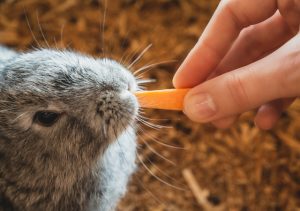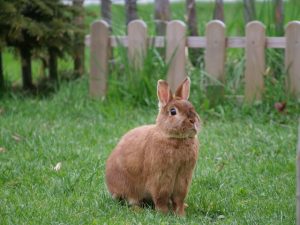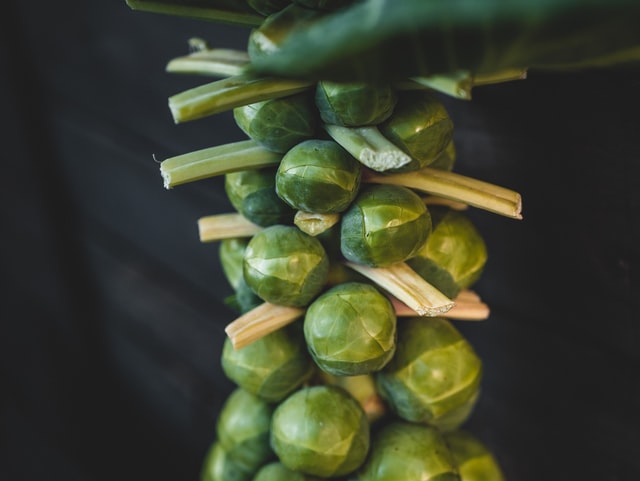
Rabbits make fantastic pets, but it’s essential that you watch what you’re feeding them so that they can have the longest and healthiest life possible with you.
Contents
- Should You Feed Rabbits Brussel Sprouts?
- Are Brussel Sprouts Healthy For Rabbits?
- How Do Brussel Sprouts Harm Rabbits?
- How Do You Know If Your Rabbit Has Too Much Gas?
- How Do You Treat A Rabbit With Too Much Gas?
- How Much Brussel Sprout Can You Feed Your Rabbit?
- Are There Safer Options To Brussel Sprouts For Rabbits?
- Are Cooked Brussel Sprouts Safe For Rabbits?
- Are Frozen Brussel Sprouts Safe For Rabbits?
- Can You Feed Your Rabbit Brussel Sprouts?
When caring for a rabbit and organizing its food, the most important things and the most significant part of its diet are clean, fresh drinking water, and high-quality hay and grass. Without an ample supply of hay or grass, your rabbit's digestive system can be damaged especially if you’re feeding it poor food choices.
It’s possible to supplement your rabbit's diet with some leafy greens and pellets, but the big question is can rabbits eat Brussel sprouts? The answer is yes, but there are limitations that we need to discuss before you feed your rabbit any Brussel sprouts.
Should You Feed Rabbits Brussel Sprouts?
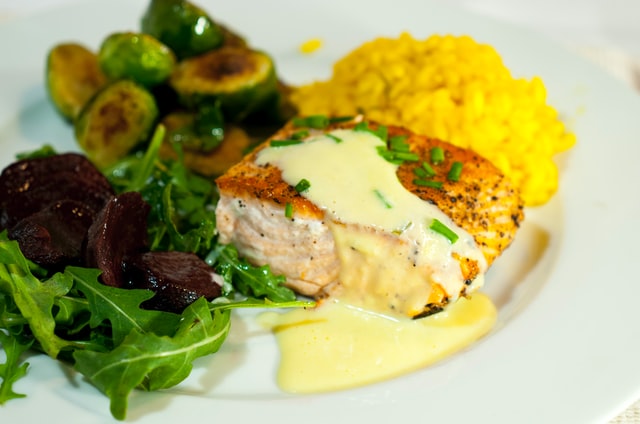
You can feed your rabbit Brussel sprouts, and rabbits actually love them, so they will consume as much as you provide. However, it’s essential that you don’t overfeed your rabbit on Brussel sprouts and only offer them as treats rather than a primary part of your rabbit's diet.
One issue with Brussel sprouts is that eating them gives rabbits gas, which can lead to gastrointestinal discomfort and distress when overconsumed.
Your rabbit's diet shouldn’t have more than 10% taken up by Brussel sprouts, and even less may be better depending on your bunny. Ensure you gauge how Brussel sprouts affect your rabbit when you feed them and modify the max percentage as you see results, but 10% is the maximum for any rabbit.
You should also be limiting Brussel sprouts to a once per week treat for your rabbit so that any ill effects have time to dissipate; otherwise, you may find the problem compounds and gets worse if you feed a small amount to them daily.
Are Brussel Sprouts Healthy For Rabbits?
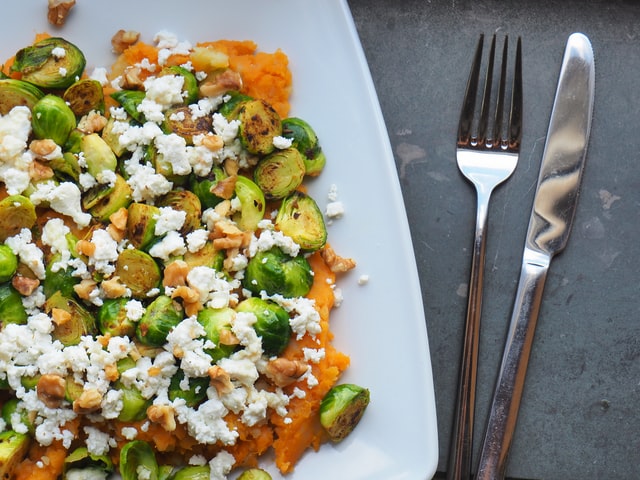
Brussel sprouts are a nutrient-filled option for your rabbit, so the small quantities you provide will benefit their overall health, making them a suitable choice but still something you need to watch and measure how much is being eaten.
Included in Brussel sprouts are high levels of Vitamin A, B6, and K, which all provide support for your rabbit's organs, metabolism, nerve and muscle function, bone health, along with general healthy growth. Brussel sprouts are also high in fiber which is hugely beneficial to your rabbit's digestion and moving other more harmful foods out of your rabbit's system.
How Do Brussel Sprouts Harm Rabbits?
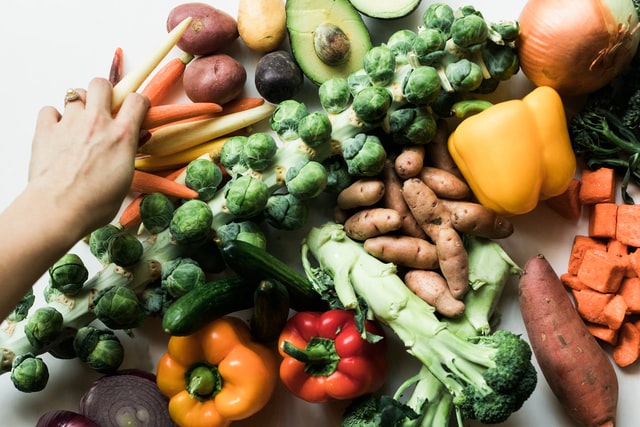
Brussel sprouts cause gas, whether you’re a human or rabbit, it’s just how it goes, but the biggest problem for rabbits is that they can’t pass gas, and it gets stuck in them, causing gastrointestinal issues and distress. The more Brussel sprouts you let your rabbit eat, the bigger the problem becomes, and can ultimately lead to your rabbit dying of too much gas.
The other problem is that while you may be watching how many Brussel sprouts your rabbit is eating, there are other leafy vegetables that can combine and cause issues, such as broccoli, kale, cabbage, cauliflower, and many more.
You don’t need to altogether remove Brussel sprouts from your rabbit's diet; it’s all about moderation and letting your rabbit enjoy life with a few treats to keep them happy. Another issue to watch for is constipation which can cause similar issues or indicate gas as well, so keep an eye on your rabbit's droppings and ensure they’re regular.
How Do You Know If Your Rabbit Has Too Much Gas?
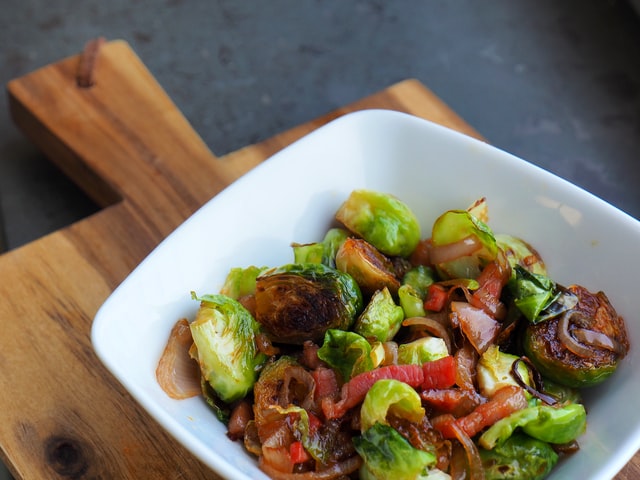
When your rabbit has too much gas from things like Brussel sprouts, you need to provide immediate support and even visit a vet for assistance. Otherwise, it’s possible to be a fatal problem for your rabbit.
Symptoms of too much gas in your rabbit include:
- Gurgling sounds from your rabbit's stomach
- Lethargic with minimal interaction and half-closed eyes, usually sitting still in a corner or quiet place.
- Low food appetite even if you offer your rabbit their favorite food
- Laying in strange positions in an effort to relieve pain and discomfort, often this includes on their side with their front raised. They may even stay upright and refuse to sleep or lay down at all.
- Either an extremely hard stomach or a very soft belly. Ensure you know how your rabbit's stomach feels and check for a significant difference.
- A low temperature, so it's important to check your rabbit's temperature regularly so you have a baseline and know when there's a problem.
How Do You Treat A Rabbit With Too Much Gas?
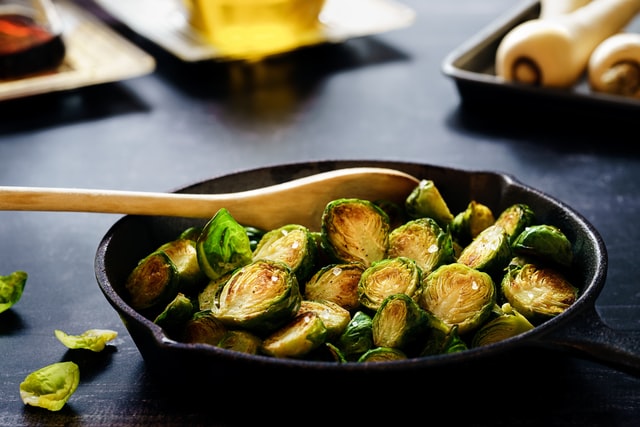
If you suspect your rabbit has too much gas and you have been feeding them Brussel sprouts and other leafy vegetables, then you need to act quickly; some of your options to help your rabbit include:
- Low temperature should be dealt with by warming your rabbit up before hypothermia sets in, and keep checking your rabbit's temperature.
- Use a heating pad
- Warm water bottle
- Heating lamp
- Hold your rabbit against your body for body warmth.
- Provide a liquid gas relief to your rabbit (simethicone product); you may even need to crush up and add liquid to a pill if required.
- Infant gas relief is the best option; provide around 0.3ml for a small rabbit or 0.5ml for a slightly larger rabbit.
- Provide this every 4-6 hours until your rabbit appears better, eating and laying normally.
- Gently rub your rabbit's stomach to help ease pressure and relieve some of the pain.
- Once your rabbit starts eating and laying down normally again, which should be within the day, then you should ensure your rabbit gets hydrated and eats some healthy food to help its stomach feel better and get back on track.
- Some form of acidophilus would be beneficial for your rabbit after an episode of gastrointestinal issues.
If your rabbit doesn’t get better within the day or you’re concerned, then take your rabbit to the vet for some professional help.
How Much Brussel Sprout Can You Feed Your Rabbit?
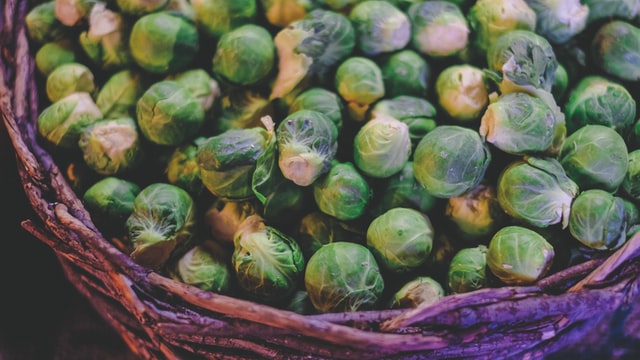
As mentioned, you shouldn’t feed your rabbit more than 10% of its diet in Brussel sprouts or a combination of Brussel sprouts and other leafy vegetables that can cause gas.
You should keep brussel sprout and other leafy vegetables as a once-a-week treat, or at least not every single day until you understand how these vegetables interact with your rabbit. It’s possible that your rabbit has minimal problems, or your rabbit may have significant issues from the smallest amount of Brussel sprouts.
Age can play a factor in whether you should be feeding your rabbit green leafy vegetables. Don’t feed a baby or very young rabbit any Brussel sprouts, and let them become adults before you introduce anything.
If you don’t feed your adult rabbit any other green leafy vegetables or problematic vegetables, you should max the brussel sprout intake to 1 small or half a large brussel sprout each week.
The first time you try giving your rabbit anything, keep the quantities small and increase to see how things go. Your rabbit may love the taste but may not enjoy the aftereffects of too much or too many new things in their diet.
Are There Safer Options To Brussel Sprouts For Rabbits?
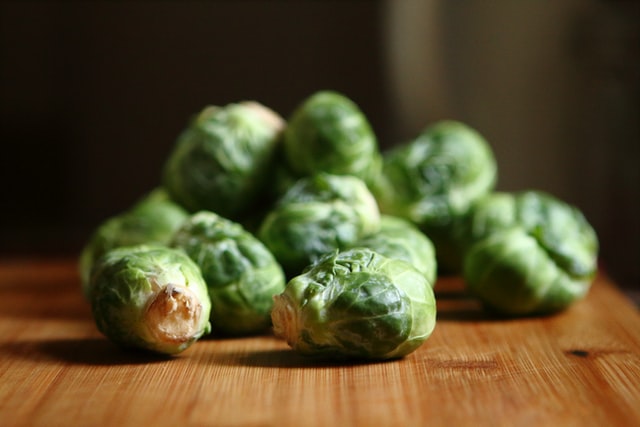
The goal of your rabbit's diet should be to provide a wide variety of different foods while still keeping the base or majority of the diet to hay or grass.
By providing variety in your rabbit's food, you ensure they get all the nutrients they need and don’t overindulge in any one food, which could cause them problems, a small amount of most things should be safe for your rabbit.
Adding a variety of crunchy fresh vegetables is a good option; just be wary of how much overall you’re giving; some good options include:
- Spinach
- Broccoli
- Endive
- Arugula
- Cilantro
- Swiss Chard
- Beet Greens
- Cucumber
- Bell Peppers
- Fennel
- Bok Choy
Are Cooked Brussel Sprouts Safe For Rabbits?
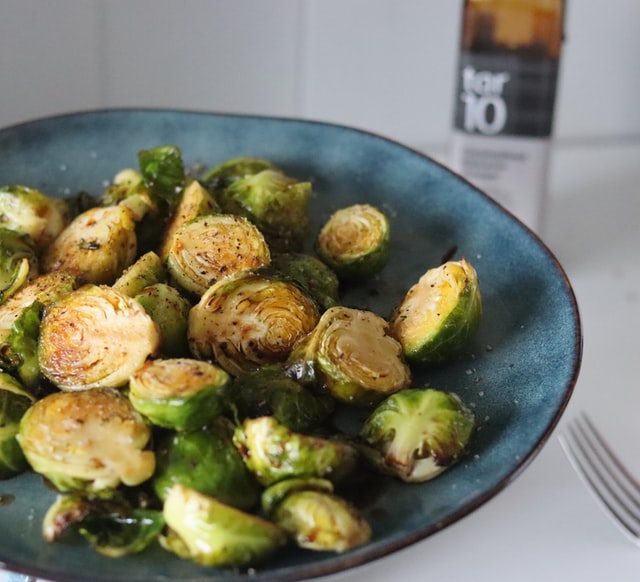
Cooked Brussel sprouts and almost any other type of vegetable are not suitable for your rabbit; the cooking will increase the effects on your rabbit's digestive system, and gas will increase much faster with cooked food.
Stay away from cooking your rabbits vegetables and let them enjoy fresh crunchy vegetables.
Are Frozen Brussel Sprouts Safe For Rabbits?
Frozen Brussel sprouts have two issues that make them unsuitable to give to your rabbit. Giving your rabbit a big hard frozen brussel sprout is likely to cause harm to their mouth or teeth. Once thawed, the Brussel sprout is going to be soft and squishy, which is not what your rabbit wants and is no longer a tasty treat for them.
Can You Feed Your Rabbit Brussel Sprouts?
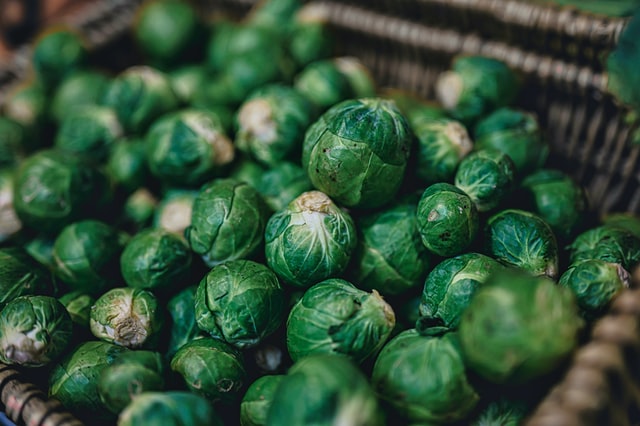
Rabbits should primarily eat hay or grass; you can feed your rabbit up to 10% of its diet with other foods, including Brussel sprouts. You must spread the treat foods out over time and consider only giving your rabbit Brussel sprouts and other green leafy vegetables once per week. You can also consider switching up what vegetable you give them or provide smaller portions of different vegetables for them to try.


